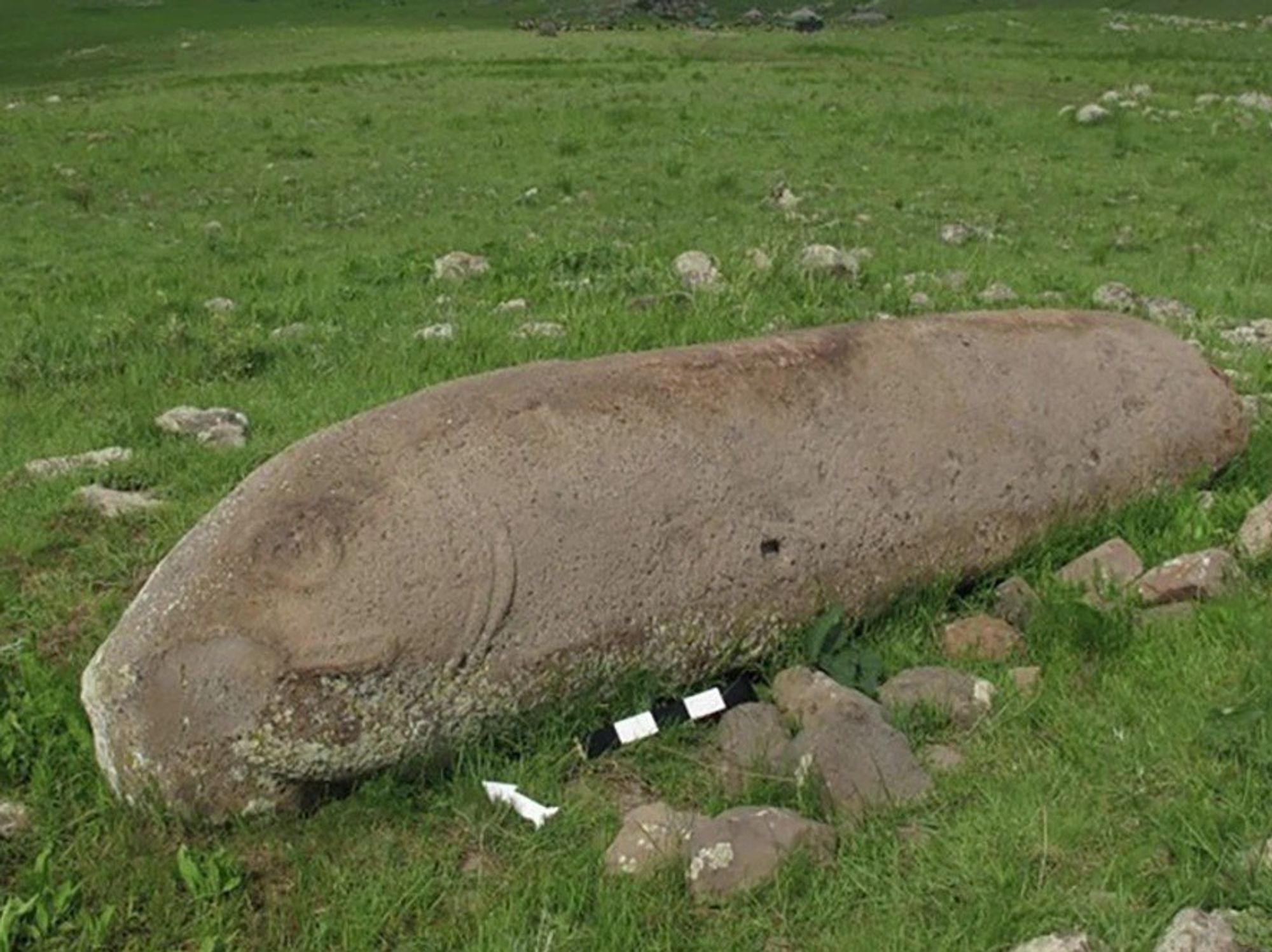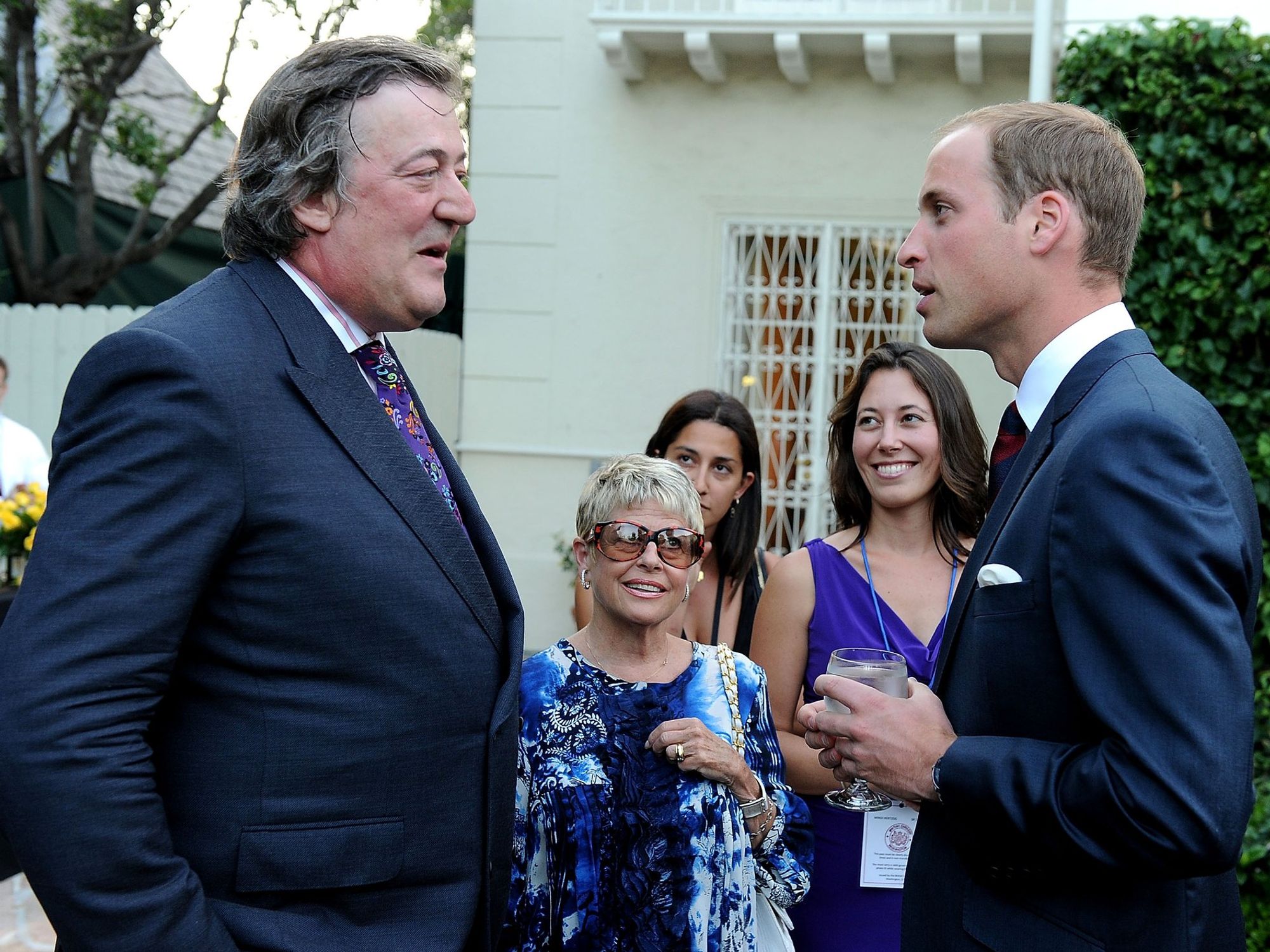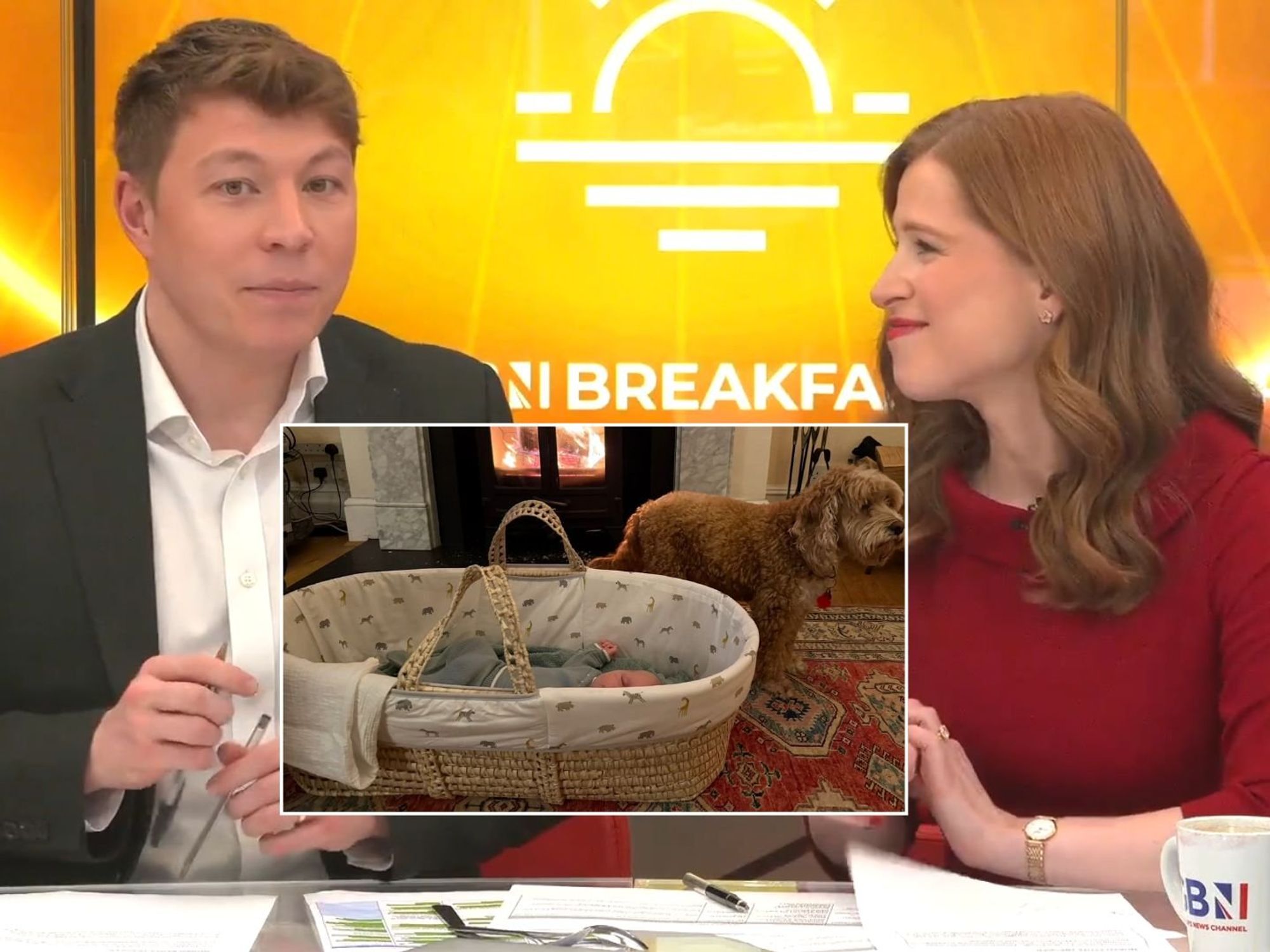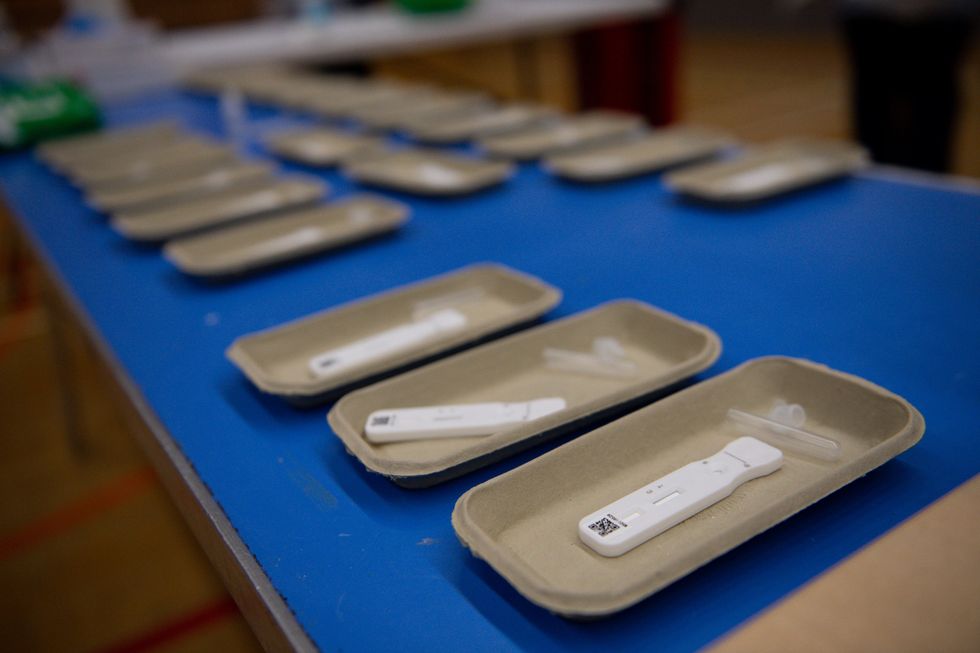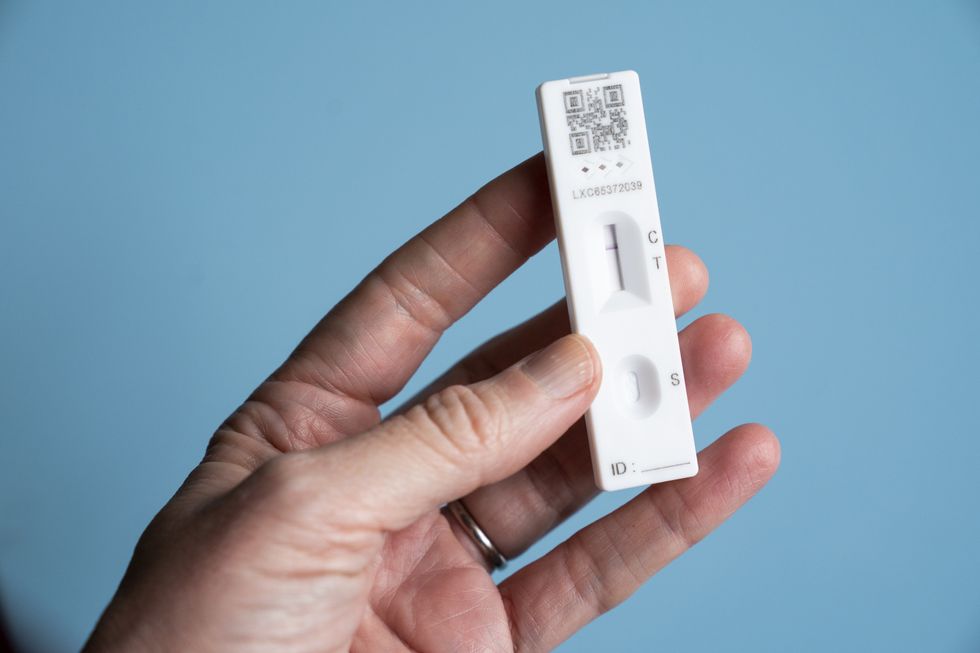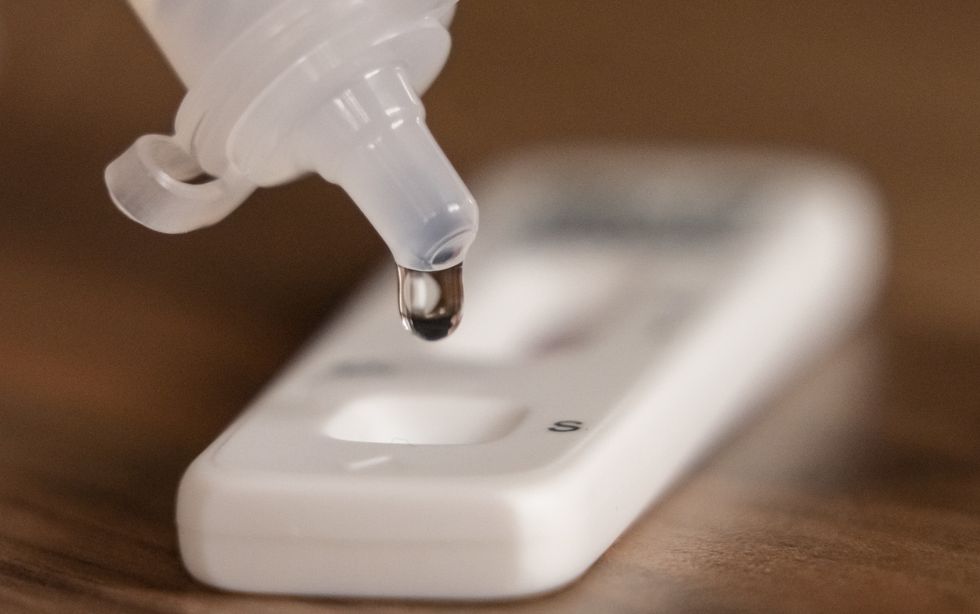UKHSA using ‘crony’ procurement practices, warns supplier

The UKHSA has come under fire after it granted a 'direct award' — whereby the agency can offer an immediate contract in emergency circumstances
Don't Miss
Most Read
The UK Health Security Agency has been accused of “crony” procurement activity by a global medical supplier after a controversial million-pound purchase.
Frederik Filz-Reiterdank, co-owner and director of prominent British sterile glove manufacturer Novum Group and medical supplies company MB MedTech, told GB News that he believes the UKHSA was engaging in “cronyism” after it gave an expensive direct award contract to a competitor after ignoring dozens of other suppliers who had applied for months for the same opportunity.
Since 2021, the UKHSA has procured Lateral Flow tests through a Dynamic Pricing System (DPS), whereby suppliers apply to become approved producers for the agency. The UKHSA assesses suppliers according to regulatory framework, financial stability and product quality while regularly issuing Invitations To Tender (ITTs), when those suppliers are asked to provide up to date pricing and product availability to meet the agency’s demands.
The UKHSA published Lateral Flow tests ITTs roughly every 4 to 6 months during 2021, with their dozens of suppliers responding with their pricing and availability, but their regularity declined during 2022 as the pandemic eased.
The UKHSA has now come under fire from at least one supplier over LFT procurement
Jacob King
However, a DPS for Lateral Flow tests that was opened for applications on 13 June 2022 has still not seen any of its bidders evaluated for business.
Evaluations for the previous DPS for tests took less than two weeks, but this second effort has seen suppliers waiting for approval well over six months after it went live.
The UKHSA has now come under fire from at least one supplier after it granted a “direct award” — whereby the agency can offer an immediate contract in emergency circumstances — to MedCo.
On February 15, the UK government issued a £238 million contract to MedCo to deliver Lateral Flow tests from Febraury 20 to August 20. This is not the first time that UKHSA has issued direct awards to MedCo and another major company, Innova, for medical supplies during the COVID-19 pandemic response.
In 2021 and 2020, Innova was paid £730million, £230million, and £500million in three separate direct awards.
Amid confusion and suggestions of cronyism about the awards, the UK Government is also being accused by suppliers of withholding information about these direct awards despite public requests for information. In 2021, a freedom of information request about £3.3 billion of COVID-19 test kits contracts given to Innova was rejected by the Department of Health and Social Care (DHSC), which refused to even disclose whether the testing kits were in fact delivered.
At the time, the agency said: “DHSC has considered the public interest of being transparent, in particular, because the spending in question relates to both an issue of significant public interest and because it recognises that significant public money has been spent on the COVID-19 response. However, DHSC would counter this by saying that it is in the continuing public interest that the department can negotiate the best value for money and that this will be permanently prejudiced long after this particular project is wound down if the requested information is published by DHSC.”
It added: “Therefore, we consider that the public interest in maintaining the exemption outweighs the public interest in disclosing the information.”
Filz-Reiterdank said: “It’s already hard enough for a new British manufacturer to break into the NHS given the multiyear procurement timelines (framework contracts are often issued only once every 4-6 years), the added level of cronyism makes it near impossible to break into central procurement which is underpinned by personal relationships.”
The company director warned that this opaque procurement process was not giving taxpayers the best value for money.
Innova's company director warned that this opaque procurement process was not giving taxpayers the best value for money
Jane Barlow
The UK government has been spending significantly more on a per test basis compared to much smaller EU government tenders for the same product. For example, Lithuania’s best bid was for €0.52 per test (approx. £0.44 per test at the time) whereas Britain’s more efficient bid was at £0.95/test. This meant that the UKHSA’s procurement was 117% more costly.
“Given the UK has spent approx. £6 billion on Covid testing, one could say that these ‘inefficiencies’ — whether created by cronyism or otherwise — have cost the UK taxpayer approx. £3 billion,” Filz-Reiterdank told this broadcaster.
He added: “UK tender evaluations have an unusually high degree of subjectivity which often leads to a sincere lack of transparency, which in turn leads to cronyism and with that a lack of competition. This is not the first time we see the UK government overpaying by over 100% compared to comparable EU tenders for commodity products.
“Suppliers regularly get disqualified due to subjective reasons, such as the purchasing body assessing an answer to a process question below a minimum passing grade.”
The businessman warned that the UK government was failing to objectively assess bidders for lucrative contracts, which in turn meant that startups often miss out.
“Disputing a tender assessment is nearly impossible and entirely inaccessible for startups because you have to engage in (expensive) legal proceedings. There is no clear procedure to dispute, complain or whistleblow.”
The businessman warned that the UK government was failing to objectively assess bidders
Danny Lawson
He added that his company had been disqualified for a tender in the past due to purely subjective reasons after being the top supplier according to hundreds of specific technical queries.
Filz-Reiterdank said that the government has ignored his concerns: “We’ve written countless letters with factual comprehensive reports arguing against the decision to the procurement body, DOJ and whichever body seemed relevant and never received a sufficient response.”
A UKHSA spokesperson said: “The UK Health Security Agency has utilised the PCR Procurement Regulations to vary 3 existing non-committal contracts with Tanner Pharma, Medco and PDL. These contracts were originally awarded in February 2022 for the period of 6 months with the options to extend for a further 6 months.
“This modification to extend the contract has been made as any further competition under the newly-procured DPS would take time to prepare and award, and therefore would not be possible before the current DPS contracts expire on 20 February 2023.
“No new funds were committed as part of this modification, and these extensions have been made in line with public sector procurement guidelines.
“DPS evaluations have taken place as part of a two-stage process, and a recent internal review concluded that due to an overall decrease in the demand for testing, UKHSA is currently sufficiently stocked to meet short to mid-term needs. A decision has therefore been made to pause further evaluation for the time being, though applications to join the DPS remain open.’’





